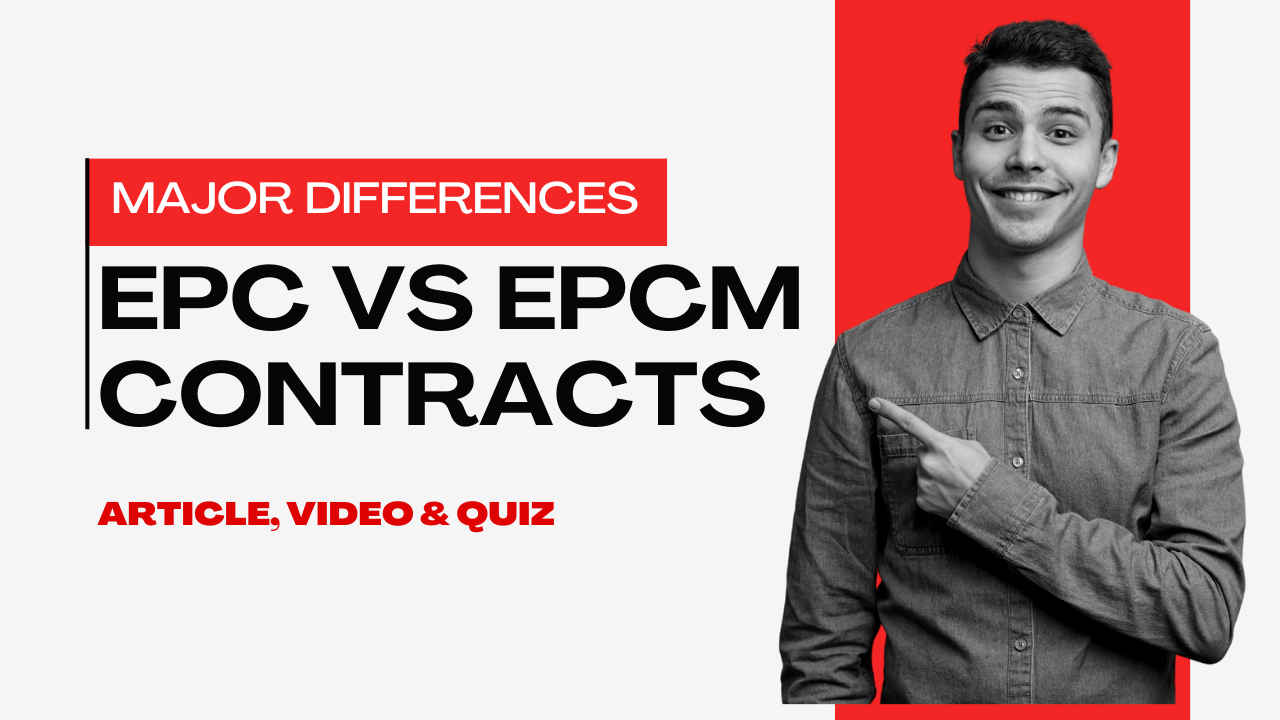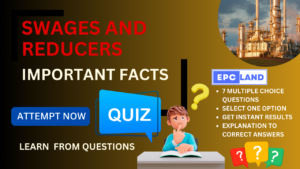EPC vs EPCM Contracts, when it comes to complex projects in industries like construction, energy, and infrastructure, two common contract types come into play: EPC (Engineering, Procurement, and Construction) and EPCM (Engineering, Procurement, Construction Management). While both contract types involve multiple aspects of project management, they have distinct differences that can significantly impact project execution, cost, and control. In this comprehensive guide, we’ll delve into the core disparities between EPC and EPCM contracts, helping you make informed decisions when embarking on your next major project.
Introduction
In the world of large-scale projects, clear contractual frameworks are essential to ensure smooth collaboration among various stakeholders. EPC and EPCM contracts are two widely used approaches, each with its own set of advantages and considerations. Understanding the nuances of these contracts can help project owners, contractors, and investors choose the most suitable option for their specific needs.
Table of Contents
Don’t miss the Complete Course on Piping Engineering: Check Now
By EPCLand.com
EPC Contracts: A Closer Look
Engineering, Procurement, and Construction (EPC) contracts are known for their turnkey approach to project management. In an EPC contract, a single entity, often referred to as the EPC contractor, is responsible for the entire project lifecycle, from design and engineering to procurement of materials and construction. This integrated approach offers several benefits:
Advantages of EPC Contracts
- Single Point of Responsibility: EPC contracts provide project owners with a single point of contact for all project-related matters. This simplifies communication and reduces the risk of miscoordination.
- Risk Allocation: EPC contractors assume a higher level of risk compared to other contract types. They are responsible for meeting project deadlines, adhering to budget constraints, and ensuring overall project success.
- Cost Certainty: EPC contracts often come with a fixed price, giving project owners a clear understanding of project costs from the outset.
EPCM Contracts: A Closer Look
Engineering, Procurement, and Construction Management (EPCM) contracts follow a different approach. In an EPCM contract, project management responsibilities are split between the client and the EPCM contractor. While the EPCM contractor oversees the engineering, procurement, and construction phases, the project owner retains greater control over decision-making and risk management.
Advantages of EPCM Contracts
- Flexibility: EPCM contracts offer project owners greater flexibility to make adjustments during the project’s lifecycle. This adaptability can be advantageous when dealing with evolving project requirements.
- Owner Control: With an EPCM contract, project owners maintain direct control over critical decisions and have a more hands-on role in project management.
- Transparency: EPCM contracts provide increased transparency into project costs, as project owners are more involved in the procurement process.
Key Differences: EPC vs EPCM Contracts
| Aspect | EPC Contracts | EPCM Contracts |
|---|---|---|
| Responsibility | Single entity (EPC contractor) | Split between owner and EPCM contractor |
| Risk Allocation | EPC contractor bears significant risk | Risk shared between owner and EPCM contractor |
| Control | EPC contractor has more control | Project owner retains more control |
| Decision-Making | EPC contractor makes decisions | Project owner involved in decisions |
| Cost Management | Fixed price contract | More transparency in cost management |
| Flexibility | Less flexibility for changes | Greater adaptability for adjustments |
FAQs on EPC vs EPCM Contracts
Q1: What does EPC stand for? A1: EPC stands for Engineering, Procurement, and Construction.
Q2: Which contract type provides a fixed price? A2: EPC contracts often come with a fixed price, providing cost certainty.
Q3: What is the main difference between EPC and EPCM contracts? A3: The main difference lies in responsibility and control, with EPC contracts assigning more responsibility to a single contractor and EPCM contracts involving shared responsibility and owner control.
Q4: Which contract type offers more flexibility? A4: EPCM contracts offer greater flexibility, allowing adjustments throughout the project’s lifecycle.
Q5: What benefits does an EPC contract provide? A5: EPC contracts offer a single point of responsibility, risk allocation to the contractor, and a fixed price, providing project owners with clear project management and cost expectations.
In conclusion, choosing between EPC and EPCM contracts requires careful consideration of the project’s scope, complexity, and the level of control desired by the project owner. EPC contracts offer a turnkey solution with a single point of contact, while EPCM contracts provide greater flexibility and owner involvement. By understanding the key differences between these two contract types, project stakeholders can make informed decisions that align with their project’s goals and requirements.
Recommended courses (Published on EPCLand)
- Basics of Piping Engineering
- Piping Layout Engineering
- Piping Material Engineering
- Piping Stress Analysis
- Complete Course on Piping Engineering
- Material Requisitions
- Piping Material Specifications
- Valve Material Specifications
Don’t miss the published articles on following:
Related Video on EPC vs EPCM Contracts
Attempt Quiz
Question 1:
What does EPC stand for in project contracts?
Explanation: EPC stands for Engineering, Procurement, and Construction. It is a type of project contract where the contractor is responsible for all three phases: engineering design, procurement of materials and equipment, and construction.
Question 2:
What is the primary role of an EPCM contractor?
Explanation: The primary role of an EPCM (Engineering, Procurement, and Construction Management) contractor is to manage the entire project lifecycle, including engineering, procurement, and construction, while engaging other specialized contractors for specific tasks.
Question 3:
Which party carries the most project risk in an EPC contract?
Explanation: In an EPC (Engineering, Procurement, and Construction) contract, the EPC contractor carries the most project risk, as they are responsible for delivering the project on time, within budget, and meeting performance specifications.
Question 4:
Which type of contract provides more flexibility for the owner to manage the project?
Explanation: An EPCM (Engineering, Procurement, and Construction Management) contract provides more flexibility for the owner to manage the project, as the owner retains more direct control over the project elements and can engage specialized contractors.
Question 5:
Which of the following is a typical characteristic of an EPC contract?
Explanation: A typical characteristic of an EPC (Engineering, Procurement, and Construction) contract is that the EPC contractor provides all engineering and construction services, taking full responsibility for the project delivery.


